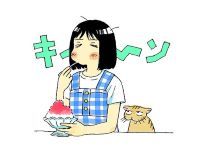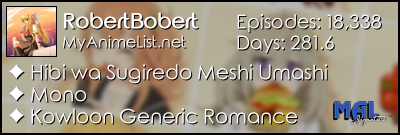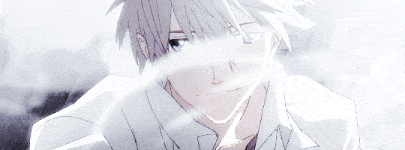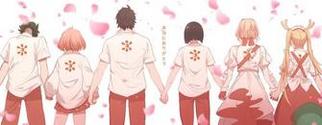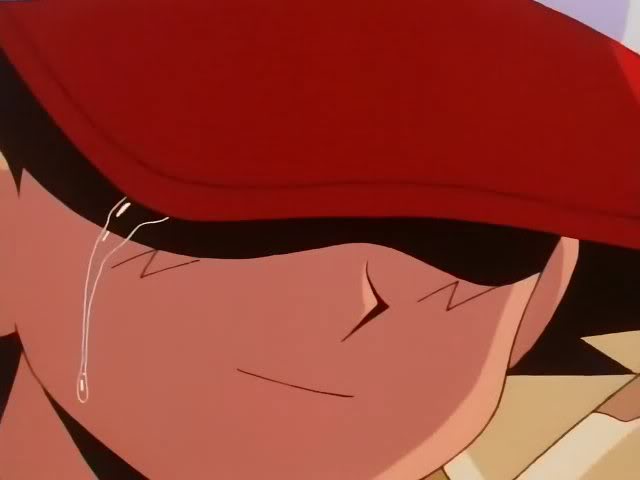qwaker said:
Some people didn't just like Frieren – Frieren became a revelation for them. People can't believe that anime fantasy can be more complicated than the primitive lowbrow trash aka most of anime releasing in every season recently.
On the Internet, I found the following response to the criticism of the title: "Yes, you should be happy – for once, it's not isekai, but ordinary fantasy got popular!"
But on closer inspection, the Frieren is not that much different from the typical isekai. If you put aside the tropes of truck-kun and reincarnation, then the elements familiar to the genre catch your eye: DnD aesthetics with dungeons and groups of adventurers; a super-strong protagonist who does not face much resistance; even a magic exam arc reminds mushoku tensei with its school arc.
Fans of Frieren like to focus on prologue, calling it a unique find. But, in my opinion, lately it has been more difficult to find a fantasy show in which the protagonist fights the demon king in the old-fashioned way, rather than plots in the spirit of: "I was kicked out of the squad, and I became a farmer / handyman / crypto investor." This is, of course, a separate trope that has nothing to do with Frieren, but the general trend is obvious.
If the story had come to an end at prologue, it would have turned out to be a good melodramatic short film/oneshot, reminiscent of Jun Maeda and Mari Okada's tearjerkers – seriously, watch Sayonara no Asa ni Yakusoku no Hana wo Kazarou and you will find a lot in common.
Unfortunately, leaving on time is a whole art, and it is subject to few.
Over the next 20+ episodes, the series will remember less and less that it is actually a parable about the transience of time. The apotheosis of this dementia was the current arc of the exam, which focused on the standard senen narrative with lengthy dialogues about the abilities of the enemy.
After the end of the prologue, the series balanced for some time between a meditative road movie and a full-fledged action, but the last arc ate up so much precious time that parity was finally broken. And the situation is made worse by the fact that Kanehito Yamada does not know how to write action stories.
Let's take episode 10 as an example.
At the very beginning, Fern tells the defeated demon that in order to defeat Aura with the Guillotine, Frieren will hide her mana from Aura. Then there is a flashback in the length of an entire episode (ahem-ahem), in which a little Frieren learns from the sorceress Flamme. For this flashback, apart from the details of the lore, we are told exactly the same thing: to kill a demon, it is enough to deceive it without showing the true amount of mana. After the flashback, a denouement occurs, and Frieren finally deals with the demoness. Guess how? By hiding mana from the Guillotine! And nothing else – no complication of the situation.
Do you feel what I'm getting at? One plot bit for the whole series (the bit in the script is the kind of information that moves the story, changes the state of things, etc.) – 20 minutes of timing to convey the same thing in different ways!
Someone will definitely decide that the film adaptation is to blame – they say, the damn animators are dragging their feet again. But the slow pace is the least of the problems of this passage. Any first–year student of the screenwriting department will tell you that the basic principle of the screenplay is a constant roller coaster: if the hero succeeds, then in a minute he should already be on the brink of death.
Throughout the entire fragment, Yamada did not bother to create even the slightest illusion that Frieren might lose. This is trivial storytelling and it's just boring. What is the final goal of this scene? To show how cool our autistic elf is. And this is, I'm sorry, the Solo leveling level.
Half of the running time of episode 25 is occupied by the monotonous conversation of the characters (just compare it the episode of the Dungeon meshi, where each dialogue develops a conflict between the characters), at the end of which Fern clearly demonstrates that she is able to surpass Freeran. The examinees have a simple plan: Frieren distracts, Fern kills, the others stand aside. Creativity, of course, is just like that. An amazing animated battle begins between big-eared and her clone, which is interrupted by another flashback.
Yamada doesn't seem to fully grasp the function of flashbacks. Her flashbacks are informative, but they absolutely do not recontextualize what is happening in the present tense, do not give a new dimension. In other words, the flashback should introduce a new variable into the equation, but the screenwriter continues to scribble notes in the margins.
If the difference between a Dungeon and a Frieren is still not clear to everyone, then let me explain it. Good screenwriting is like guessing riddles. The writer creates a situation that should cause the following reaction: how will the hero get out of this? How will he achieve his goal?
And it wouldn't be such a problem if the battles were just a nice bonus to the main narrative. But no – the further you go, the more action you get.
Yamada does a decent job in the genre of melodrama and abstract philosophical parable. Yamada has interesting thoughts – many have noticed a fresh look at demons as (non)thinking beings. It is also worth noting the chemistry between the main three, although often the interactions of the characters are reduced to simple jokes.
But in all that is beyond the above, Yamada simply lacks writing skills. There are not enough vivid images (compensated by the film adaptation), specific details, and interesting situations. It seems that mangaka just can't think through intense battle scenes.
The heterogeneity of the quality of measured and action-oriented arches is tempting to descend to speculation: you might think that the author wants to write one story – a simple and meditative everyday life, like an Aria, and the editors pull action and HYPE from the poor guy. But the imagination deliberately paints a black-and-white picture of the world with an oppressed creator and greedy merchants, whereas in reality the creator himself may suffer from internal censorship and fear of losing an audience.
Yamada's "carelessness" as a writer manifests itself in other aspects. Despite the abundance of false inserts, information about the world remains fragmented and does not add up to a complete picture. Even the titanic efforts of the background artists do not help: the world of Freerun has remained a DnD decoration for me.
Japan has absorbed the aesthetics of DnD mainly through games in the MMO RPG genre. That's why all the plots in this setting turn out to be monotonous, like daily quests, and the characters are one-dimensional, like NPCs
Frieren is the Mona Lisa of anime world that the weebs deserve: forgetful, awkward, with obvious signs of autism and an ass sticking out of a mimic chest... And for some reason they drew a manga and an animated series about her, although they could have limited themselves to a twitter art posts about her.

